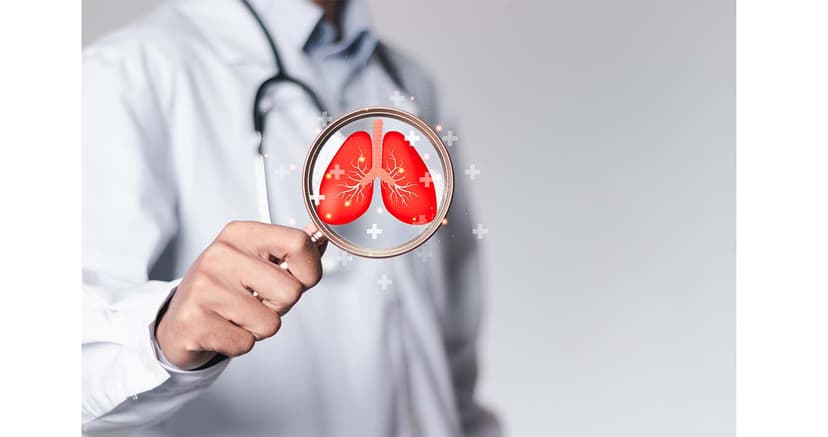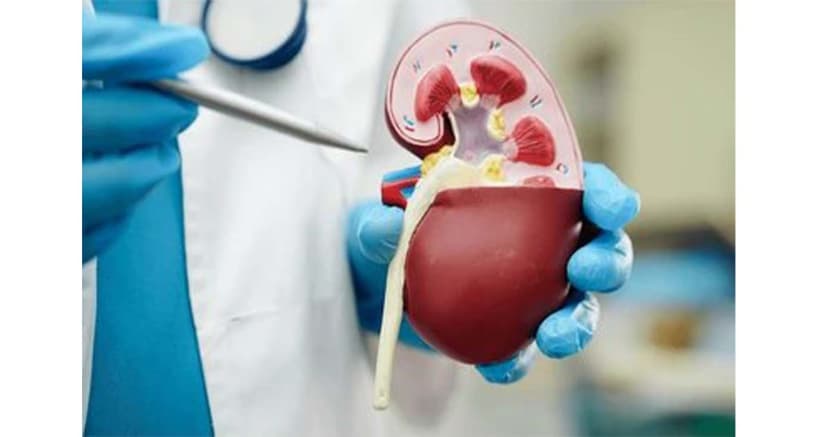Snoring and Sleep Apnea: Diagnosis and Treatment Options
By:

Apex Hospitals
08-01-2024 5 Min Read

You might have seen in cartoons when a character snores; it's often shown as if they're sawing logs. That description isn't too different from snoring, which can be loud and annoying.
Snoring is quite common; about half of all people have snored at some point in their lives. While it can be distracting, especially for those nearby, people snore for many reasons. It's a widespread experience that many of us go through. In this interactive blog, we'll delve into snoring and sleep apnea, exploring the diagnosis and treatment options that will help you bid farewell to restless nights.
What is snoring?
Snoring is a noisy breathing pattern that occurs while you are sleeping. Even though it is more prevalent in men and in individuals who are overweight, it is an illness that can afflict everyone. Snoring is a condition that typically worsens with age. The vibration of the tissues in the back of your throat produces snoring. Snoring can be caused by the flow of air you breathe in, whether it comes from your mouth, nose, or both points.
Snoring is a common symptom caused by various mild conditions, including having a cold or allergies. It is possible that it will not interfere with your sleep in certain circumstances; nonetheless, it may cause you to wake up with a tongue that is dry or a painful throat.
In most cases, snoring occasionally is not a significant cause for concern. Almost everyone, including infants and young children, will snore at some point. On the other hand, loud and jarring snoring may indicate sleep apnea. This disorder causes you to cease breathing while you are sleeping, as explained by Dr Vijayant Solanki, Senior Consultant in Pulmonary Medicine at Apex Hospitals.
The fact that you snore does not necessarily indicate that you have sleep apnea. Nevertheless, it is essential to be aware of the distinction between merely annoying snoring that can be associated with significant and even harmful health problems. Here is how to determine whether or not your snoring could result from sleep apnea and when you should consult a medical professional.
What is Sleep apnea?
A condition known as sleep apnea is characterized by a pause in breathing that occurs while a person is asleep. The word "apnea" originates from the Greek word that means "the absence of breath." People are said to have sleep apnea if they stop breathing while sleeping. There are two possible causes for this condition: obstructive sleep apnea, which occurs when your airway becomes blocked, and central apnea, which occurs when your brain fails to manage your breathing correctly.
Due to the lack of oxygen produced, a survival reflex is triggered, waking you awake just enough to allow you to continue breathing. Your sleep cycle, which is responsible for keeping you alive, is disrupted due to this reaction. This not only hinders you from getting a good night's sleep but also has the potential to have other impacts, such as placing stress on your heart, which can have potentially fatal consequences.
Snoring or Sleep Apnea: What's the Difference?
If your bed partner has ever woken you up while sleeping, you know how frustrating snoring can be. As a result of the fact that there are numerous varieties of snoring, it is essential to identify the potential causes of the condition before deciding on the most appropriate treatment.
There are a variety of factors that can lead to primary snoring, which is a type of snoring that is not caused by sleep apnea. These factors include the following:
- Older age, which might result in the muscles of the throat becoming more relaxed
- A deviated septum occurs when the wall that divides the nose is forced to one side, or enlarged tonsils are examples of disorders that can affect the nose or throat.
- How you sleep, particularly lying on your back
- Consumption of alcohol, other tranquilizers, or muscle relaxants in the hours leading up to or during bedtime
- The condition of being overweight results in decreased muscular tone and increased tissue around the neck
There are a few of these basic causes of snoring that are beyond your control, while others are somewhat more under your control. For example, if you want to avoid the disruption that snoring causes, you could try sleeping on your side or refraining from drinking alcohol before going to bed.
Sometimes, snoring is an indication that you have sleep apnea. If you have sleep apnea, our pulmonologists can help you stop snoring so that you can reduce your chance of developing certain health disorders such as heart attack, stroke, Type 2 diabetes, and asthma.
Symptoms That Could Indicate That You Have Sleep Apnea
Sleep apnea can be caused by various factors, including medical disorders, anatomy, or anything else that obstructs your airway while sleeping. What are some of the causes of sleep apnea?
- Obesity
- Large tonsils
- Disorders of the endocrine system, including hypothyroidism
- Conditions that affect the neuromuscular system, such as muscular dystrophy and stroke
- Heart or kidney failure
- Complications that are caused by genetics, such as cleft lip and cleft palate
- premature births.
It is common for sleep apnea snoring to be distinguished from primary snoring by its distinctive characteristics and more severe consequences. If, while you are sleeping, you have any of the following symptoms, you may have sleep apnea:
- Extremely loud snoring
- Pause while breathing for more than 10 seconds
- Having shallow breaths
- Choking or Gasping
- Feel restless
- Excessive fatigue during the day, even after getting an adequate amount of sleep
The Relationship Between Sleep Apnea and Your Health
In addition to causing disruptions in your sleep and the sleep of everyone else in the vicinity, sleep apnea can also cause other problems.
Concerns Regarding the Quality of Sleep
If you experience a pause in your breathing, you will either transition from a deep to a light state of sleep or entirely wake up, both of which will result in inferior quality sleep. This disruption in the cycle can also lead your body to release hormones associated with stress, which can affect how your body uses energy. You may experience drowsiness and grogginess throughout the day for all these reasons.
Being tired isn't the only thing that might result from poor sleep quality. In addition, it can result in issues such as putting on weight, losing memory, experiencing skin aging, experiencing depression, and having difficulties learning.
Sadly, this can be a cycle that is harmful to the individual. For example, if you have sleep apnea, you are more likely to gain weight, but if you are obese, a weight increase might also put you at risk for developing sleep apnea.
Complications related to the Oxygen Levels
The most severe problems caused by sleep apnea happen because of the ups and downs in oxygen levels when breathing stops and starts at night. This fluctuation can lead to inflammation, which may cause plaque buildup in your blood vessels, also known as atherosclerosis.
This accumulation can make you more susceptible to having a heart attack, a stroke, developing type 2 diabetes, and experiencing damage to your pancreas.
Diagnosis of Sleep apnea
When diagnosing sleep apnea, our healthcare expert will typically ask you questions about your symptoms and your medical history. If, based on your symptoms and responses, they suspect you have sleep apnea, they would most likely request that you undergo testing for sleep apnea.
Which tests will be performed to diagnose sleep apnea?
All of the following are the most common tests for sleep apnea:
- Polysomnography: This is an overnight test in which you sleep in a medical facility (commonly referred to as a "sleep lab") that is specifically designed to provide you with the highest level of comfort while yet performing the necessary monitoring of your sleep. The sensors used in this examination will monitor your heart rate, respiration, blood oxygen levels, brain waves, and other physiological parameters. When it comes to identifying sleep apnea, this test is considered by specialists to be the gold standard.
- Home testing for sleep apnea: One can carry out a sleep study from home using this assessment method. It is comparable to a study that involves sleeping an entire night but does not require monitoring brain waves. This test is not capable of diagnosing central sleep apnea, and it is typically not an option when medical professionals suspect more severe sleep apnea, or if you have experienced other sleep problems or are suffering from medical issues. It is common practice for doctors to recommend confirming the absence of sleep apnea with an overnight sleep study when a home study does not reveal the condition.
Treatment of sleep apnea and snoring
The most significant issue with sleep apnea is that it causes your airway to get blocked while sleeping.
This is a list of possible treatments for sleep apnea:
- lifestyle changes that are beneficial to one's health, such as quitting smoking, exercising, and eating healthy
- Breathing devices, such as a continuous positive airway pressure (CPAP) machine, which requires you to wear a mask over your nose and sometimes your mouth, to supply you with continuous oxygen while you are sleeping
- Mouthpieces are devices that momentarily readjust the jaw or tongue to facilitate the flow of air while the individual is sleeping.
- Therapy for the muscles of the mouth and face, which can help enhance the position of your tongue and strengthen your facial muscles.
To treat sleep apnea, it is essential to adopt a healthy lifestyle, which may involve adjusting your food and maintaining an active lifestyle. These help reduce the severity of your sleep apnea and mitigate the condition's symptoms. It may also be necessary to monitor your treatment regularly by your physician to guarantee it is functioning as it should.
Your body can refuel, revitalize, and maintain health when you get enough sleep. In the absence of sufficient sleep, your health and well-being are put in jeopardy. Simple adjustments to your lifestyle and therapy can help you and those around you get a better night's sleep, allowing you to wake up refreshed.
"Take the first step towards treating your sleep apnea. Book your appointment now for a better night's sleep!"
FAQS
Related Articles
Connect With Us
Health In A Snap, Just One App.
KNOW MORE



































































































